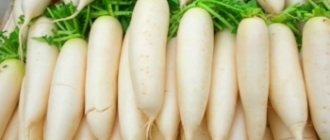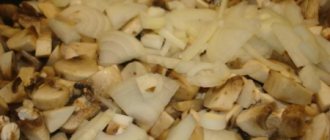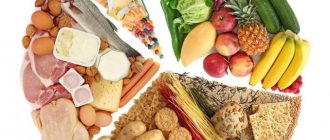Exposure to air and sun is the oldest method of harvesting sweet fruits. Valuable varieties of tropical fruits are poorly stored fresh. Since ancient times, drying has provided people on all continents with access to the treasury of the tropics at any time of the year. The development of science has explained the exceptional properties of dried fruits.
Modern suppliers position them as an alternative to fast food , an environmentally friendly product. Skeptics talk about aggressive chemistry that has replaced drying and a sea of preservatives that ensure presentation and shelf life. But first things first.
Dried fruits: benefits and harms
The share of dried fruits in the diet of the population of many countries has increased significantly in recent years.
This is due to the comparative availability of dried fruits in terms of price and the possibility of their long-term storage, in contrast to fresh berries and fruits. People leading a healthy lifestyle consider this product extremely useful, because they contain a huge amount of biologically active substances. The latter improve the functioning of individual organs and systems and have a beneficial effect on the human body as a whole.
The benefits of dried fruits
Ingredients: In properly dried fruits, the balance of vitamins and microelements - calcium, iron, potassium, sodium and magnesium - is absolutely unique.
Experts say that if a person eats about 150 g of dried fruit cocktail every day - prunes, figs, apricots, raisins or pieces of apple, pear, pineapple, melon, then he can forever forget about any problems with the gastrointestinal tract.
At the same time, just five medium-sized dried apricots contain the entire daily dose of iron necessary to maintain hemoglobin and calcium levels - a fact that especially affects people with a sedentary lifestyle.
Dried fruits are rich in easily digestible fructose, which satisfies the need for sweets and does not cause harm. And another advantage is that they are lightweight, do not take up much space, and therefore are a very good food choice for tourists and athletes.
A general hierarchy of fruits according to their antioxidant content is provided by a research team from Tufts State University, focusing on their ability to absorb free radicals, without dividing fruits into fresh and dried.
Here's the top of the list: prunes, raisins, blueberries, strawberries, raspberries, plums, oranges, grapes, cherries. For some reason, however, this study does not include figs, and the dried version even knocks prunes out of the top spot, according to a publication in the Journal of American Nutrition.
Undoubtedly for purely practical reasons, the small fruits, which can be dried whole or cut in half, have become the stars of the group. Another reason can be sought in the fact that the “classic five” consists of the most typical fruits for the lands around the Caspian Sea, in the Middle East and North Africa, where food culture had the greatest influence.
However, dried apples, pears, quinces, cherries, berries and exotic fruits also occupy a very important place in cooking, and they also boast excellent taste, a bouquet of useful qualities and capabilities in the kitchen.
The benefits of dried fruits for the body
Dried fruits contain a lot of useful substances, vitamins, minerals, biologically active substances that have health benefits, allowing you to maintain youth longer.
Without exception, traditional medicine uses all dried fruits to cure ailments. So:
- For constipation, make a mixture of prunes (400 g) and a glass of honey. The fruit is finely chopped and mixed with honey, and this mixture is eaten every evening, one or two teaspoons. Can be taken with water.
- Dried apricots and raisins help with arrhythmia. Dried apricots can be mixed with kefir, and raisins too. Chopped fruits, pre-soaked, are cut into small pieces and added to kefir, up to three tablespoons per glass. Drink the drug randomly throughout the day. The minerals contained in fruits, especially potassium and magnesium, have a beneficial effect on heart function.
- A mixture of dried apricots, prunes, raisins and nuts helps with low hemoglobin. Dry products are combined in equal parts, for example a glass, of each fruit. After grinding, add honey and one or two lemons. The fruit-honey mixture is used for up to two weeks, eating two tablespoons per day.
- For insomnia, they resort to the help of dates. The dates are washed well, soaked in a soda solution for 30 minutes, removing the seeds, ground and poured boiling water in a thermos. After infusion, drink the infusion before bed.
Admission Tips
Let's look at a few rules for healthy inclusion of dried fruits in your diet:
- Daily norm. It is recommended to eat about 50-100 grams of dried fruit at least 2-3 times a week.
- Optimal appointment time. It is better to consume them during the daytime. Taking it at night can disturb sleep, and in the morning (for breakfast) can lead to an exacerbation of chronic diseases of the gastrointestinal system.
- How to choose in a store. High-quality dried fruits have sealed packaging. Particular attention should be paid to the composition - it should not contain sugar or chemicals.
- What can you combine with? Dried fruits go well with each other, as well as with nuts and honey. The practice of eating them together with yogurt or meat (prunes, dried apricots) is common.
- How to store. It is preferable to store dried fruits in glass, tightly closed containers in a cool, dark place (from 6 to 12 months).
- Use in cooking. Dried fruits are often used in the preparation of porridges (with oatmeal), meat dishes, baked goods, sweets and candied fruits, as well as compotes (uzvars) and jelly. In folk medicine, they are used to prepare decoctions, tinctures and infusions, as well as various mixtures with nuts, lemon and honey.
Compliance with simple standards for the use of dried fruits will allow you to fully realize your biological potential and minimize the risk of harm.
Dried fruits are contraindications. The benefits of dried fruit compote, step-by-step recipe with photos
– important information for those who love this traditional cuisine. Compote is known as a drink that quenches thirst and gives strength to adults and children.
The specific composition of vitamins and microelements in the compote is determined by the predominance of the main dried fruit in it. On average, the compote mixture contains the following set of useful substances:
| C (mg) | 0,2 | Iron (mg) | 0,3 |
The calorie content of the finished dried fruit compote is 55.6 kcal per 100 g of product. It contains no fat, and the protein content per 100 g is 0.3 g, carbohydrates - 14.5 g.
Beneficial properties of dried fruit compote
The benefits of dried fruit compote for the human body are due to the presence of certain fruits in it. The general usefulness lies in the presence of a complex of vitamins (A, B1, B2, B3, C, PP) and minerals (Na, K, Zn, Fe, Cu, Mg) contained in all dry ingredients.
The benefits are expressed by the following properties:
- Dried apricots and plums regulate intestinal function.
- Dried fruits improve blood composition; the rich potassium content promotes proper heart function.
- All dry fruits are rich in antioxidants that remove free radicals and toxins.
- Dried fruit compote has a diuretic effect if it contains dried apricots and raisins.
The benefits of the drink depend on the properties of its main components:
Prunes quickly restore normal bowel function, eliminate constipation, dysbacteriosis, and are indispensable for hemorrhoids. High potassium content is beneficial for maintaining heart function. Compound:
- sugar - 57.8%;
- organic acids - 3.5%;
- fiber - 1.6%, Na (104%);
- K (864%), Ca (80%);
- P (83%);
- Fe (15%).
Dried plums are quite high in calories - 264 kcal per 100 g of product, but when used in compote, the energy value is reduced.
Dried apricots. One hundred grams - 268 kcal.
It has a rich composition of useful substances per 100 g of dried fruit:
- retinol - 583 mcg;
- beta carotene - 3.5 mg;
- vitamin B1 - 0.1 mg;
- vitamin B2 – 0.2 mg;
- nicotinic acid – 3 mg;
- vitamin C - 4 mg;
- tocopherol - 5.5 mg;
- niacin - 3.9 mg;
- Ca - 160 mg;
- Mg - 105 mg;
- Na - 17 mg;
- K - 1.72 g;
- P - 146 mg;
- Fe - 3.2 mg.
The benefits are greatest for patients with heart diseases: angina pectoris, arrhythmia. Dried apricot saturates the heart muscle with potassium and magnesium, removes toxins, and removes swelling. Reduces the level of “bad” cholesterol and helps cleanse blood vessels. The fruit works as a general tonic and helps maintain healthy skin and bone tissue.
Raisin . Calorie content per 100 g - 280 kcal. Vitamin and mineral composition:
- B3 - 0.5 mg;
- B1 - 0.2 mg;
- B2 - 0.08 mg;
- niacin - 0.98 mg;
- Ca - 80 mg;
- Mg - 42 mg;
- Na - 117 mg;
- K - 860 mg;
- P - 129 mcg;
The product is useful for the functioning of the heart and kidneys, and is necessary in the diet of hypertensive patients.
Dried apple compote
To prepare you will need:
- 250 g dried apples;
- 6 tablespoons sugar;
- 2 liters of water, lemon or orange zest.
Cooking order:
- Rinse the apples with cold water and place in a saucepan.
- Cover them with sugar.
- Fill dried fruits with hot water.
- Cook the compote for 30 - 35 minutes. At the end of cooking, add the zest.
- Leave for 1 hour.
Dried pear compote
Dried pear compote is prepared in a similar way to apple compote. It should be borne in mind that the peels of pears can have a fixing effect, so it is better to remove them before cooking.
Compote of dried apricots, raisins or prunes
To cook with 1 liter of water you will need the following ingredients:
- 70 g;
- 100 g dried apricots;
- and 50 g sugar.
Preparation steps:
- Dried fruits are soaked for 5 minutes in warm water, then washed.
- The prepared portion of the fruit is placed in a saucepan and filled with the required amount of water.
- Bring the drink to a boil and cook over medium heat for 15 minutes.
- Add sugar and stir until dissolved.
- Turn off the heat and leave for 3 to 6 hours.
You can add extra raisins or replace prunes with them. The benefit of compote from dried apricots and prunes is its high saturation with potassium, magnesium, and calcium.
Dried berry compote
You can add any berries to the compote: raspberries, strawberries, blueberries, currants, blueberries. You can add barberry and rose hips, which contain large amounts of ascorbic acid.
Proportions for 2 liters of water:
- 2 cups dry berries;
- ¾ cup sugar.
Preparation procedure:
- Rinse the berries with running water.
- Boil water and put berries in it.
- Cook for 10 to 30 minutes until soft. At the end of cooking, add sweetener.
- Bring to a boil again and turn off.
- Leave for 2 hours.
The benefits of frozen berry compote are lower than those of dried fruit compote. Drying optimally preserves beneficial properties.
Is compote suitable for pregnant and lactating women?
The benefit of dried fruit compote for pregnant women is that it is a source of vitamins, does not cause swelling and is therefore recommended for nutrition of pregnant and lactating women. Helps increase lactation and diversify a woman’s diet.
Dried fruits apples: benefits. The benefits of dried fruits
The benefits of the apple are evidenced by its chemical composition. The following beneficial substances are found in the pulp of dried fruits:
- Phytoncides. Suppress the proliferation of pathogenic environments.
- Sucrose and fructose. Sugar helps restore strength and quickly saturates the body.
- Minerals. Iron and magnesium contained in the pulp improve the functioning of the circulatory system and heart muscle. Have a beneficial effect on blood quality.
- Tannins . Prevents the development of inflammatory processes in the human body. Protects against bacteria and viruses.
- Organic acids. Maintain and, if necessary, normalize the acid-base balance. The pulp of dried fruits contains citric, chlorogenic, tartaric and malic acid. Organic substances resist the attack of viruses.
- Polysaccharides. Together with pectins, they normalize cholesterol levels and also improve the metabolic process.
- Flavonoids. Restore damaged cells. Remove free radicals from the human body. However, such a substance cannot be found in the pulp of the product. It is present exclusively on the peel of the fruit.
Dried fruits are rich in vitamins and various microelements. The dried product contains vitamin A, E, B1, B2 and C. Potassium, magnesium, iodine, iron, sodium and fiber are observed. Each of these elements has a positive effect on health. For example, iodine stabilizes human hormonal levels. The rich chemical and vitamin composition confirms how useful this dried fruit is. Here are some other positive properties of dried apples:
- Used as a prophylactic for pathologies of the musculoskeletal system.
- It has a positive effect on several systems in the body: digestive, circulatory and nervous.
- Restore muscle and soft tissue.
- Fruits are recommended to be consumed for inflammation of the large intestine. Dried fruit actively fights constipation.
- Positively affects the urinary system.
- Nourishes liver tissue with beneficial vitamins and microelements.
- Improve metabolism and saturate the body with the necessary energy.
- Normalizes the functioning of the cardiovascular system.
This dried fruit is actively used for cosmetic purposes. Dried apples are used to create effective skin care products. Apple preparations fight acne and skin pigmentation disorders. A special infusion of dried fruits will help rejuvenate and invigorate your facial skin.
The recipe for preparing the tincture is as follows: 2 tablespoons of dried apples are poured with cold water (0.5 liters). When the mixture is well infused (this process takes at least one hour), it is placed on the fire and brought to a boil. Then the heated mixture should infuse again for 60 minutes. After the specified time has passed, a little cinnamon is added to the tincture. Now the apple tincture is ready for use.
Glucose in dried fruits. What dried fruits should be included in your diet?
- Dried fruits are a rich source of vitamins, minerals and beneficial acids necessary for the normal functioning of the human body. Each individual type of dried berries and fruits has its own unique composition and has certain medicinal properties.
- Prunes. This dried fruit improves the functioning of the gastrointestinal tract and normalizes metabolic processes. Prunes are a dietary product and contain valuable microelements (iron, calcium, magnesium and phosphorus).
- Figs Due to the high content of dietary fiber, vitamins and pectin, figs improve intestinal function, remove toxins and improve blood composition. Potassium helps normalize blood pressure and strengthens the walls of blood vessels.
- Dried apricots. A large amount of vitamins in dried apricots helps strengthen hair and nails. Plant fibers normalize the digestive system. This dried fruit is useful for hypertension, anemia and cardiovascular diseases.
- Raisin. Dried grapes are recommended for use for diseases of the nervous system, to relieve swelling and high blood pressure. Raisins are rich in minerals (potassium, calcium, iodine, magnesium) and are a rich source of B vitamins.
- Dates. They have a tonic and antipyretic effect. Dates contain almost all known vitamins, as well as calcium, iron, magnesium, and sodium. Dried fruit should be included in the menu for hypertension, anemia and anemia; it strengthens the cardiovascular and nervous system.
beneficial features
Nutritionists say that regularly consuming dried fruits can significantly improve your health and strengthen your immune system. within a couple of weeks you can notice an improvement in the digestive system, get rid of vitamin deficiency, improve your complexion and strengthen your hair. If the drying technology is followed, the entire complex of beneficial vitamins in dried fruits remains unchanged, only vitamin C is partially destroyed. high calcium and iron content help normalize hemoglobin levels in the blood. By consuming healthy dried fruits in small portions, you can saturate the body with the necessary glucose, without harming your figure, improve brain function and increase performance.
Pectins contained in dried fruits promote the digestion of food and remove harmful substances from the body.
Types of dried fruits
Almost all dried fruits existing in nature contain substances valuable to the body, the most useful of which include:
How to choose
To purchase dried fruits that are truly beneficial for the body, you need to choose those that have been dried in the sun or in the shade (most importantly, in the open air) without being treated with chemicals. Fruits prepared in this way will not look very appetizing: small, wrinkled, darkened. However, it is these dried fruits that will be truly beneficial and will not cause harm to the body.
Properly dried prunes have a dark matte color, turn white when wet, and taste sour. It is best to choose prunes with pits. Real dried apricots have a dark brown tint and should not be shiny. Preference should be given to apricots - dried apricots, dried with the pit. When choosing raisins, you need to consider that they are produced from two types of grapes.
When choosing any type of dried fruit, you need to take a handful of them and squeeze them slightly: natural ones will not stick together or wrinkle. A sign of the quality of dried fruits is also the presence of a small number of insects in them. It is important to distinguish this product from candied fruits. The latter are prepared not from natural fruits, but from a mixture of juice, sugar syrup and dyes. They do not provide any benefit to the body.
To find truly natural dried fruits, you need to study companies that import them directly from producing countries. Fruits are dried naturally in the southern region of Russia, Tajikistan, Uzbekistan, and Abkhazia. Such a product will not be cheap, but it will provide maximum benefits to the body.
Who benefits from dried fruits? The benefits and harms of dried fruits
Dried fruits are considered to be a natural and healthy product that is suitable even for those who are on a diet, so they can safely replace sweets. But in fact, eating them in handfuls and without knowing what the benefits and harms of dried fruits can be is not worth it. They all have different properties and have different effects on the human body; dried fruits can both help and harm. The danger also lies in the fact that you can often purchase low-quality dried fruits.
Dried fruits are very good for health, but in small quantities and with individual selection. Any fresh fruit in itself is a natural source of vitamins. After processing, dried fruits retain all their beneficial properties, except that now they are contained in a more concentrated form.
These are completely natural treats that even children love. Therefore, dried fruits are often recommended for diets, for cleansing the body, and for exacerbation of diseases of the gastrointestinal tract.
Where to buy
Dried fruits can be bought in supermarkets: loose or in factory packages. And also in the markets. We'll tell you what the pros and cons of all options are.
If you buy dried fruits in factory packaging, you have the opportunity to accurately determine their composition. Check for sugar and make sure there are no chemicals. The manufacturer will be fined for false information, so usually there is no deception here. However, you will not be able to smell the product through the packaging. And no one forbids factories from drying fruits artificially. So if you buy factory-made dried fruits, buy products from trusted manufacturers.
For bulk products, you can go to the market or supermarket. If you choose the second option, you will receive a guarantee that the dried fruits were stored correctly. The markets don't always follow this. But goods at bazaars are usually cheaper. Especially when we are talking about Uzbek, Turkish, Tunisian dried fruits. In the homeland of manufacturers, you can bargain. If you are sure that you can distinguish good dried fruits from bad ones, go to the market.











